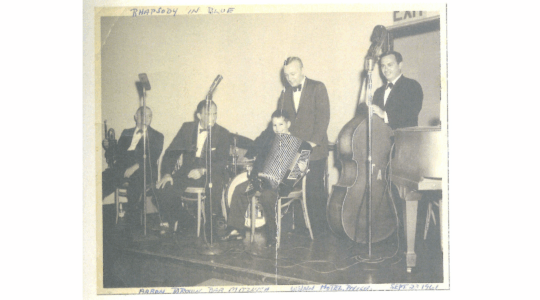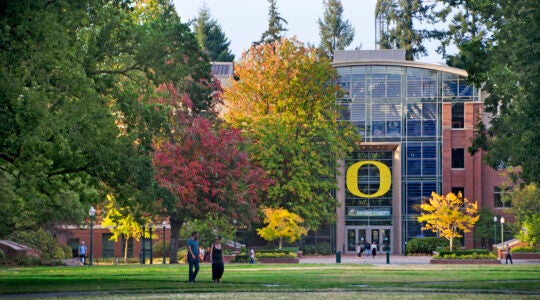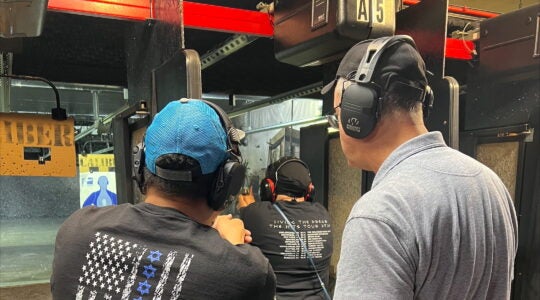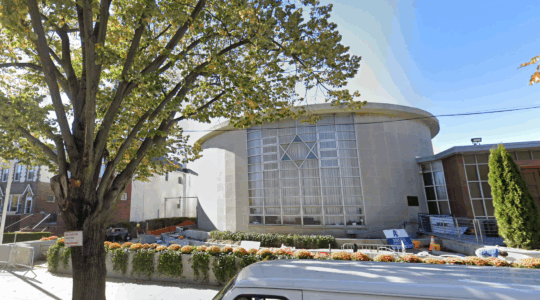Facing pressure from the Trump administration in part over its handling of antisemitism, Harvard University last week announced the appointment of Shaul Magid as professor of modern Jewish studies in residence at Harvard Divinity School.
The role is new for the school, a nondenominational center for the study of religion. Magid had been a visiting professor there for two years while on leave from Dartmouth College.
While Magid is a highly regarded scholar of Jewish thought, his appointment to the new role has raised hackles among some Jewish observers for a critical stance he calls “counter-Zionism.” In his 2023 book, “The Necessity of Exile,” he argues that while Zionism was once a necessary ideology, Israel has since become a state of Jewish domination that stands in the way of equality for all of its citizens.
Prominent voices that have criticized Harvard’s handling of alleged antisemitism said they regretted that Harvard Divinity School was elevating a “counter-Zionist” rather than adding someone who supports Israel to the faculty.
“Shaul Magid is a gracious human being & an estimable scholar of Jewish texts, notably Hasidism,” tweeted Rabbi David Wolpe, who served on Harvard’s antisemitism advisory group before later resigning. “I profoundly disagree with his stance on Israel and wish HDS would appoint someone whose views reflect the mainstream of the Jewish community.”
Shabbos Kestenbaum, a Harvard Divinity School graduate and prominent critic of Harvard’s handling of the pro-Palestinian protests that followed Hamas’ Oct. 7, 2023, attack on Israel, called Magid’s appointment a missed opportunity.
“I have enormous respect for Professor Magid,” Kestenbaum told The New York Sun. “I do wonder though, why in a Divinity school, especially one with a strong history of antisemitism, is there still no voice of normative Zionism, a central part of the overwhelming majority of Jewish Americans’ religious identity?”
Also criticizing the appointment was the right-leaning media criticism organization Camera, which wrote, “When it comes to restoring academic quality and combating antisemitism, Harvard’s actions continue to defy its lofty promises.”
Supporters of Magid’s appointment praised his scholarship, even while acknowledging that they disagreed with his stance on Zionism. In a post on Facebook, Yehuda Kurtzer, president of the Shalom Hartman Institute where Magid was previously a senior fellow, said critics of Magid’s appointment were wrong to regard him as an “enemy.”
“There is no planet on which Shaul should be considered undeserving of an academic appointment — any academic appointment, honestly,” wrote Kurtzer. “He has earned that through his scholarly record and does not need my affirmation on that front.”
At the same time, Kurtzer, who said Hartman “parted ways” with Magid over their ideological differences, called on Harvard Divinity School and other universities to seek balance in their hiring to include Zionist thinkers.
“Israel and Zionism can be a contested idea on campus like many other contested ideas, and it can taught and debated in ways that could make students who believe in these ideas grow without feeling unsafe or threatened,” wrote Kurtzer. “In that vision of the future, Shaul would be a part of the solution and not part of the problem.”
In an interview with JTA, Magid said that he, too, believes his new appointment could play a “balancing role” as Harvard faces mounting scrutiny over allegations of antisemitism on its campus.
“I think the role that I can play is I’m a person who, you know, frankly, knows a good deal about the subject and a person that engages with students who are along a broad spectrum,” he said.
“I think that I can play a role, because I do come from a particular position that is part of the Jewish left, and I say that proudly, but I certainly engage with people who I disagree with, and I certainly write about figures and ideas that I don’t particularly agree with,” Magid continued. “I think I can play a balancing role in some way.”
Magid said that while antisemitism at Harvard was an issue that should be addressed, criticism of his appointment appeared to be a “bullying tactic.”
“It’s not to say that there weren’t issues around antisemitism,” said Magid, “but I just think that this is being used as an occasion to say….’We want you to hire the right kind of Jew,’ right?”
Magid’s appointment to Harvard’s new faculty position comes as the school faces an escalating series of threats from the federal government, ostensibly over its response to antisemitism on campus. The battle between Harvard and the Trump administration has included multi-billion dollar federal funding cuts, a lawsuit filed by the school and federal efforts to revoke the university’s nonprofit status. Last month, the Trump administration revoked its permission for Harvard University to enroll international students.
Magid said that while he saw antisemitism at the pro-Palestinian protests on the Columbia University campus, he disagreed that it was present in Harvard’s protests.
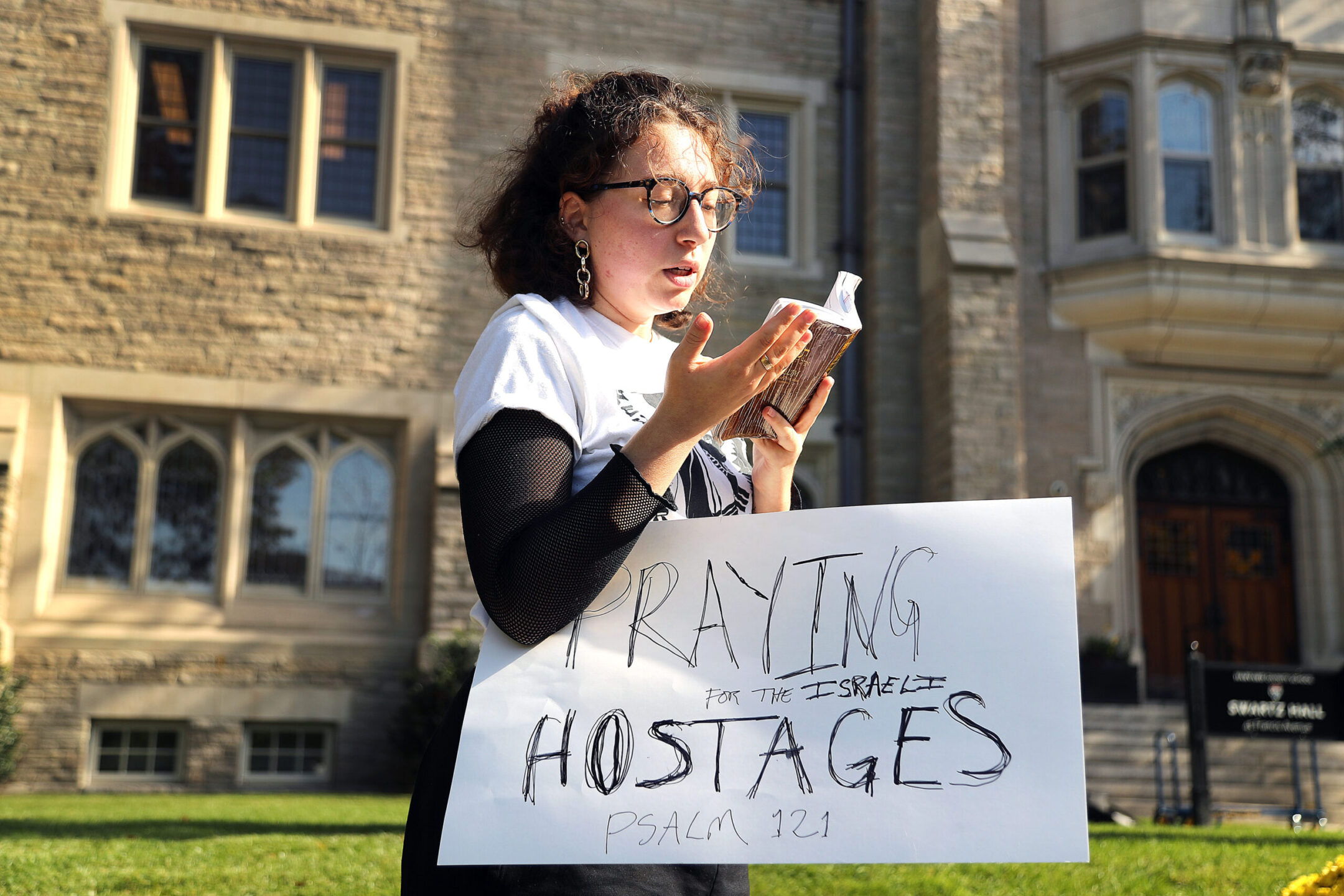
A woman prays aloud for the Israeli hostages outside the Harvard Divinity School, Oct. 25, 2023. (John Tlumacki/The Boston Globe via Getty Images)
“These people are protesting a war. They’re protesting children being killed. Now I agree that some of the rhetoric crosses over into antisemitism, but to make the jump to say that the protests are, by definition, antisemitic — to protest a war where children are being killed and people are starving, is antisemitic — is just egregious,” said Magid.
“It’s unfortunate that we’ve gotten here, and I think there are some people out there that want to promote that in part, as a deflection of paying attention to the war,” Magid continued.
Magid’s new position, professor of modern Jewish studies in residence, was encouraged by Harvard’s internal antisemitism report, released in April, which noted that searches were already underway for Magid’s position and a tenure-track professor in religion, violence, and peace. The report listed these searches under recommendations for “new academic initiatives intended to help ensure programs reflect diverse perspectives and promote inclusive excellence.”
But the antisemitism report also included a litany of violations it said had been committed by the Harvard Divinity School that allegedly harmed the learning environment for Jewish and Israeli students.
The report also lambasted the school’s Program on Religion and Public Life, which studies questions of religion and justice and took on the Israeli-Palestinian conflict as a case study.
“The Religion and Public Life program at Harvard Divinity School illustrates how a limited selection of high caliber courses on Judaism and Israel/Palestine, coupled with the influential presence of a program offering politicized, one-sided treatments of controversial issues and the embrace of a pedagogy of ‘de-zionization,’ harms the learning environment for all students, and especially for many Jewish and Israeli students,” the report read.
Magid acknowledged some of that criticism of the Program on Religion and Public Life.
“I think that they probably should have broadened their horizons, and maybe taken on another case study. I think that after Oct. 7, there were certain things that happened within that program that were probably ill-advised,” he said. “It was a complicated time. People did certain things that maybe were ill-advised, and I think that we’re trying to kind of, you know, address that issue.”
Magid said the accusation that there was no diversity at the Harvard Divinity School “on the question of Israel or Zionism” was “blatantly not true,” he said, pointing to Jon Levenson, a professor of Jewish Studies who has written critically of anti-Zionists.
“I mean, Jon Levenson is a very conservative pro-Zionist faculty member. I am not a Zionist, so maybe that’s the diversity, right? I just think people don’t recognize how universities work,” Magid said.
Magid noted that he had taught Kestenbaum in a class on exile, diaspora and trauma in the Jewish imagination during “the year of Oct. 7” alongside other students who were “blatant, overt anti-Zionists.”
“We sat in the class together. People disagreed,” he said. “It was respectful, and that’s what a university should be.”
Magid, who became an Israeli citizen in 1980, earned his rabbinical ordination while studying in Jerusalem and serves as the rabbi of Fire Island Synagogue in Long Island, New York. In an earlier interview with JTA, Magid said he “became disillusioned with Zionism while serving in the IDF during the First Intifada, and seeing up close the way in which we were dominating the Palestinian people.”
As a professor of Jewish studies at Dartmouth and a visiting professor at Harvard since 2023, Magid taught courses on Kabbalah, Hasidism and medieval and modern Jewish philosophy. His many books include studies of Lurianic Kabbalah and Hasidism, as well as a biography of the late far-right radical rabbi Meir Kahane.
This fall, he is scheduled to teach one course on Jewish liturgy and another titled “Piety, Practice, and Politics: Thomas Merton and Martin Buber,” about two theologians of the 20th century, one Christian and one Jewish.
“It’s really funny that people talk about my position on Israel or Zionism,” Magid said Monday. “I don’t even teach that.”
JTA has documented Jewish history in real-time for over a century. Keep our journalism strong by joining us in supporting independent, award-winning reporting.

